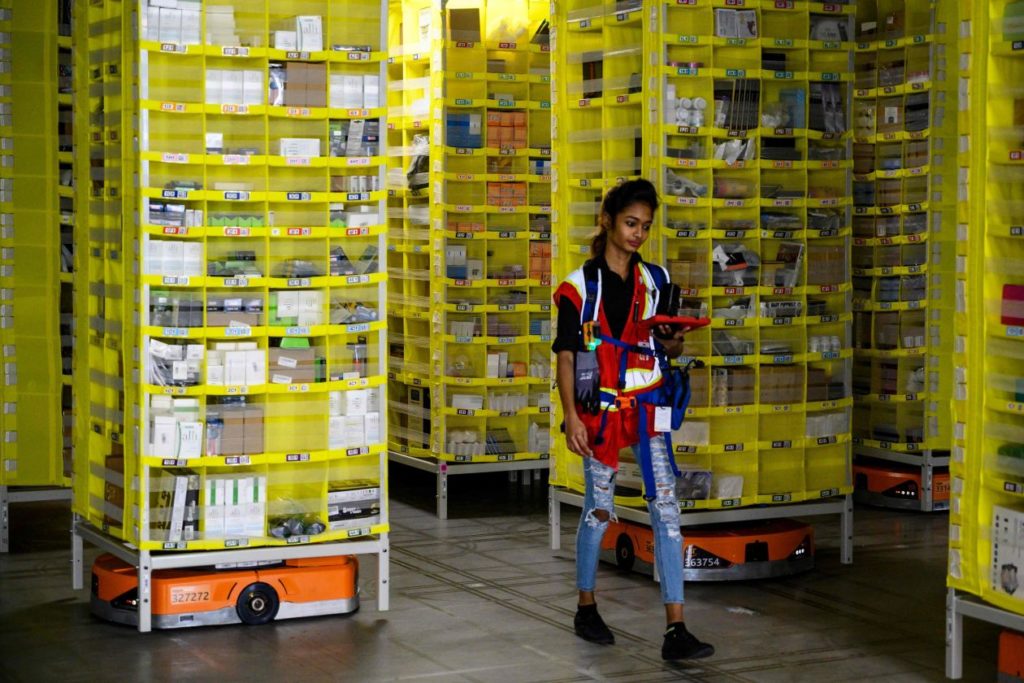When you buy online via Alibaba, Amazon or eBay, chances are high you’ll end up with a counterfeit

Companies work painstakingly to earn consumer trust. But when you purchase brand-name goods through online third-party marketplaces like Alibaba, Amazon and eBay, there’s a good chance you’ll end up with a counterfeit. On Wednesday President Trump will sign a presidential memorandum to help protect American consumers, manufacturers and factory workers from counterfeiting.
The Government Accountability Office notes in a January 2018 report that express carriers and international mail have replaced traditional cargo shippers as the predominant forms of transportation for goods entering the U.S., in part because of the “continued growth of online counterfeit merchandise sales, which facilitate direct-to-consumer shipments of infringing goods.” When GAO investigators purchased brand-name goods—from shoes and travel mugs to cosmetics and phone chargers—from third-party sellers on popular consumer websites, more than 40% of the goods turned out to be counterfeit.
In Operation Mail Flex, a 2017 investigation, Customs and Border Protection officers randomly examined more than half of the express-mail packages arriving daily from Hong Kong and mainland China over a five-day period—and seized 43% of them. These seizures included 1,297 noncompliant imports, such as counterfeit pharmaceuticals (along with controlled substances, including fentanyl).
Why are counterfeits ubiquitous in third-party online marketplaces? For one, because customs law has not kept up with the surge of e-commerce. Alibaba, Amazon and eBay face virtually no liability when they act as middlemen for counterfeiters.
For another, perverse incentives often make it more profitable to sell counterfeits than genuine brand-name goods. The Journal reported last July that more than half of unit sales on Amazon “are from independent merchants, including those who sell their own brands,” and that “these transactions typically are more profitable to Amazon” than selling from its own warehouse, “because it takes a roughly 15% cut and avoids inventory costs.”
The realization that third-party online marketplaces are riddled with counterfeits is reminiscent of Gresham’s law, the economic axiom that “bad money drives out good.” In this new digital Wild West, counterfeits devalue legitimate brands. The 2018 Global Brand Counterfeiting Report found two-thirds of consumers who had unintentionally bought counterfeit goods lost trust in the legitimate brand. In addition, “34% of all consumers surveyed were less likely to buy from the brand’s own website if its products had been susceptible to counterfeiting elsewhere online.” Clarivate Analytics’ 2018 Global Online Shopping Survey found that after discovering they’d bought a fake, 27% of consumers warned family and friends about the legitimate brand and 26% stopped spending on the brand.
Counterfeiting harms consumer health and safety, too. In another operation, Customs and Border Protection seized 1,378 hoverboards with counterfeit batteries that carried a risk of causing fires. When the global certification company UL tested 400 counterfeit iPhone adapters for safety, fire and shock hazards, 99% of them failed—and 12 of the adapters posed a risk of lethal electrocution.
Even when brand owners are successful in getting online marketplaces to remove counterfeit sellers, the counterfeiters change the names of their stores and relaunch as quickly as they are removed.
By establishing a strategy and blueprint for change, today’s presidential memorandum takes an important step toward holding online third-party marketplaces and other intermediaries accountable. The directive instructs the Department of Homeland Security to coordinate with federal law-enforcement agencies working to combat counterfeiting of good. Online third-party marketplaces should note these efforts and move swiftly to clean up their own houses.
Mr. Navarro is assistant to the president for trade and manufacturing policy.
Source: The Wall Street Journal, Peter Navarro | April 3, 2019